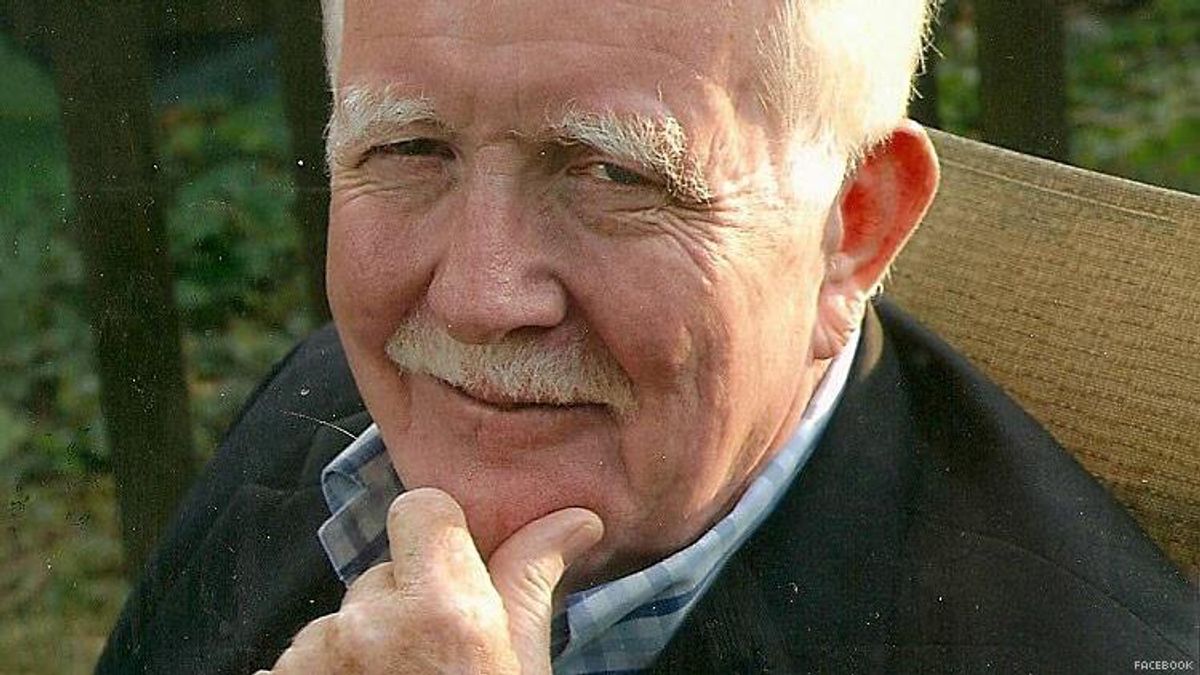Tom Gallagher, the first U.S. Foreign Service officer to come out publicly as gay, has died at age 77.
He died Sunday in New Jersey of a heart condition and a staph infection, his husband, Amin Dulkumoni, told The New York Times.
Gallagher served for many years in the closet in countries "where he might have been imprisoned or worse if officials learned he was gay," the Times notes. Also, the revelation of his homosexuality could have prevented him from receiving a security clearance from the U.S. government. He left the Foreign Service, part of the State Department, after coming out in the 1970s, then returned at a time when he could be out on the job.
At a 2012 event for the State Department's LGBT employee group, GLIFAA, then-Secretary of State Hillary Clinton lauded Gallagher and his service. "I don't want any of you who are a lot younger ever to take for granted what it took for people like Tom Gallagher to pave the way for all of you," she said, adding, "All of the employees who sacrificed their right to be who they were, were really defending your rights and the rights and freedoms of others."
Gallagher's career began in the Peace Corps, which he joined in 1962, shortly after graduating from Monmouth University in New Jersey. President John F. Kennedy and First Lady Jacqueline Kennedy hosted a send-off party for his group of Peace Corps volunteers, the Washington Blade reports, and Gallagher went on to be posted to Ethiopia. In that country, he heard the first shot fired in the Eritrea province's war for independence, he once said.
Upon returning to the U.S., he worked as a White House aide, assisting in President Lyndon Johnson's War on Poverty programs. He joined the State Department in 1965. He was assigned for a time to Saudi Arabia, where he was serving when the Arab-Israeli war broke out in 1967, and then Nigeria, during its war with the breakaway region of Biafra. Back in the U.S., he worked for the State Department's personnel office, where he advocated for equality for female employees.
After his six-year marriage to Carolyn Worrell ended in 1972, Gallagher started being more open about being gay. While posted in Los Angeles, he volunteered as a counselor at the city's Gay Community Services Center. In 1975 he accepted an invitation to speak at a Gay Activist Alliance conference in Washington, D.C., on gays and the federal government, at which he reportedly said, "I guess this is my coming-out party."
After being posted briefly in Ecuador, where he became the youngest chief to date of a major U.S. diplomatic mission, he left the State Department in 1976. His security clearance was up for renewal, and at that time gays and lesbians couldn't receive security clearances. He became a social worker in California, working for a time in the emergency room at the University of California, Los Angeles, Medical Center.
He later was a supervisor for the Travelers Aid Society in San Francisco, directed a psychiatric emergency program in Napa County, Calif., and volunteered in AIDS services, according to the Blade.
In 1994, after President Bill Clinton lifted the ban on gays and lesbians obtaining security clearances, he returned to the Foreign Service. He was named U.S. consul in Madrid, where he helped raise millions of dollars for the Spanish AIDS Foundation. Later he became country officer for Eritrea and Sudan in the State Department's Office of East African Affairs, serving during a time of civil war in Sudan.
In 1999 he was named head of the visa program in Brussels, Belgium, where he was credited with denying a visa to "a radical Moroccan who was linked to a terrorist organization considering a plot to spray poison on a U.S. city," the Blade reports.
He retired in 2005 but continued to take brief assignments for the State Department. He also was an adjunct professor at Monmouth University, teaching a course on the Middle East.
Jacqui Shine, who profiled Gallagher for Slate, recalled him as "very funny, sweet, and a hell of a storyteller," according to the Blade. "He was as astonished as anyone by the extraordinary turns his life took, and humbled by and grateful for all he experienced," she added.
Survivors include his former wife, Worrell, who is a judge in Nevada; and his husband, Dulkumoni, a senior software engineer at Goldman Sachs. They married in 2017.


















































































Fans thirsting over Chris Colfer's sexy new muscles for Coachella